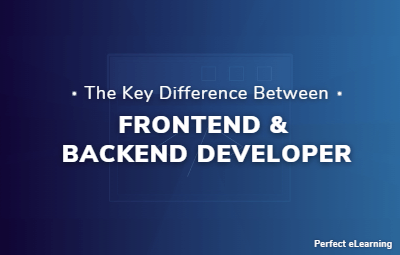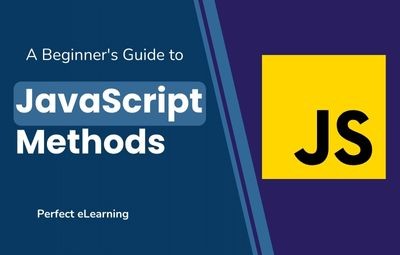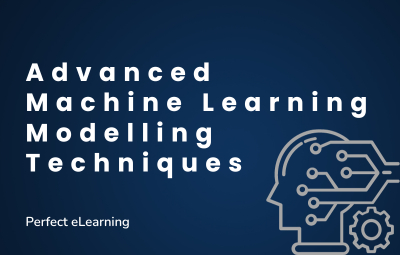

In today's digital age, where almost every business has an online presence, the role of developers has become critical. Two types of developers play an essential role in website or web application development, frontend developers, and backend developers. While both work together to build a website or web application, their roles and responsibilities differ significantly. Here, we will dive deeper into the key differences between frontend and backend developers and provide you with a detailed understanding of their respective roles.
What is a Frontend Developer?
A frontend developer is responsible for building the parts of a website or web application that users can see and interact with. This includes the design, layout, and user interface elements such as buttons, forms, and dropdowns. They use various tools and technologies such as HTML, CSS, and JavaScript to develop visually appealing and user-friendly interfaces.
What is a Backend Developer?
A backend developer is responsible for building the parts of a website or web application that users cannot see, such as the server, database, and application logic. They use programming languages such as Python, Ruby, and PHP to develop the logic that powers the application.
While both frontend and backend developers work together to build a website or web application, their roles and responsibilities differ significantly.
Roles and Responsibilities of a Frontend Developer:
Designing and developing user-friendly and visually appealing interfaces.
Ensuring the website or web application is responsive and can be accessed on multiple devices.
Collaborating with designers to ensure a consistent design language across the website or application.
Optimizing website or web application performance by implementing best practices and performance optimization techniques.
Roles and Responsibilities of a Backend Developer:
Developing server-side logic and application logic that powers the website or web application.
Building and maintaining the database that stores user data.
Ensuring the website or web application is secure and protected from cyber attacks.
Integrating third-party APIs and services into the website or web application.
Tools and Technologies Used by Frontend Developers:
HTML: Markup language used to structure content on the web.
CSS: Styling language used to make web pages visually appealing.
JavaScript: Programming language used to add interactivity to web pages.
Frameworks: Popular frameworks include React, Angular, and Vue.js, which provide pre-built components to simplify development.
Tools and Technologies Used by Backend Developers:
Programming Languages: Popular programming languages include Python, Ruby, and PHP.
Databases: Popular databases include MySQL, PostgreSQL, and MongoDB.
Server-Side Frameworks: Popular frameworks include Django (Python), Ruby on Rails (Ruby), and Laravel (PHP).
Skills Required for Frontend Development:
Proficiency in HTML, CSS, and JavaScript.
Familiarity with design tools such as Adobe Photoshop and Sketch.
Understanding of user experience (UX) principles.
Knowledge of web performance optimization techniques.
Skills Required for Backend Development:
Proficiency in programming languages such as Python, Ruby, or PHP.
Familiarity with databases such as MySQL or PostgreSQL.
Understanding of server-side frameworks such as Django or Ruby on Rails.
Knowledge of cybersecurity best practices.
Conclusion:
Frontend and backend developers play an equally important role in website or web application development. While their roles and responsibilities differ significantly, they work together to create a seamless user experience. Frontend developers focus on building user-friendly and visually appealing interfaces, while backend developers focus on building the logic that powers the application. Both require specific skill sets, and it is important to understand the differences between the two roles to build an effective development team.
Frequently Asked Questions (FAQs):
Q. Is it necessary for a frontend developer to know backend development?
While it is not necessary for a frontend developer to know backend development, having a basic understanding can be beneficial. It can help with collaboration and communication between frontend and backend developers.
Q. Can a backend developer work as a frontend developer and vice versa?
While there may be some overlap in skills, frontend and backend development are two distinct roles that require different skill sets. It is possible for a developer to learn both, but it may be more efficient for them to specialize in one or the other.
Q. Which is more important, frontend or backend development?
Both frontend and backend development are equally important in building a website or web application. They work together to create a seamless user experience, and a lack of focus on either can result in a suboptimal end product.
Q. Can a full-stack developer perform both frontend and backend development?
A. Yes, a full-stack developer is someone who is proficient in both frontend and backend development. They can work on both the client-side (frontend) and server-side (backend) of a web application.
Perfect eLearning is a tech-enabled education platform that provides IT courses with 100% Internship and Placement support. Perfect eLearning provides both Online classes and Offline classes only in Faridabad.
It provides a wide range of courses in areas such as Artificial Intelligence, Cloud Computing, Data Science, Digital Marketing, Full Stack Web Development, Block Chain, Data Analytics, and Mobile Application Development. Perfect eLearning, with its cutting-edge technology and expert instructors from Adobe, Microsoft, PWC, Google, Amazon, Flipkart, Nestle and Info edge is the perfect place to start your IT education.
Perfect eLearning provides the training and support you need to succeed in today's fast-paced and constantly evolving tech industry, whether you're just starting out or looking to expand your skill set.
There's something here for everyone. Perfect eLearning provides the best online courses as well as complete internship and placement assistance.
Keep Learning, Keep Growing.
If you are confused and need Guidance over choosing the right programming language or right career in the tech industry, you can schedule a free counselling session with Perfect eLearning experts.


